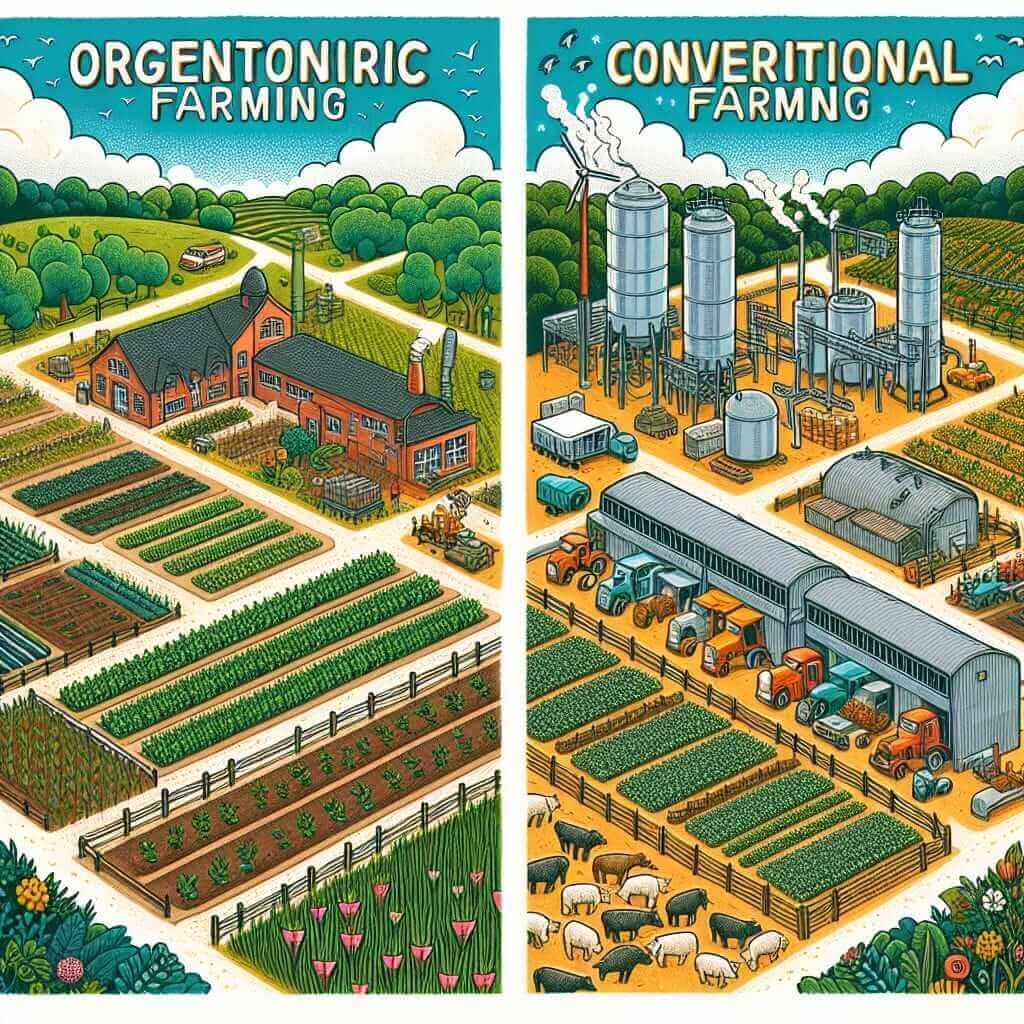The increasing awareness of environmental protection and sustainable living has brought “organic farming” into the spotlight, making it a recurring theme in IELTS Writing Task 2. This essay will delve into the significance of organic farming in achieving sustainable agriculture, exploring its multifaceted benefits and potential drawbacks.
Here are some potential IELTS Writing Task 2 questions related to this topic:
- Many people believe that organic farming is the only way to achieve sustainable agriculture. To what extent do you agree or disagree?
- What are the advantages and disadvantages of organic farming compared to conventional farming methods?
- Some argue that organic food is too expensive and only benefits the wealthy. Discuss both views and give your own opinion.
Sample Essay Question
Many people believe that organic farming is the only way to achieve sustainable agriculture. To what extent do you agree or disagree?
Analysis of the Question
This question requires you to present a balanced argument, discussing both sides of the issue. You need to:
- Acknowledge: The increasing popularity and potential benefits of organic farming.
- Analyze: Whether organic farming alone can fully address the challenges of sustainable agriculture.
- Present Counterarguments: Consider the limitations, challenges, and alternative solutions related to sustainable agriculture.
- State your position: Provide a clear and well-justified opinion on the extent to which you agree or disagree with the statement.
Sample Essay
Organic farming, with its emphasis on natural processes and eschewal of synthetic inputs, has gained significant traction as a viable pathway towards sustainable agriculture. While its contributions to environmental protection and food quality are undeniable, it would be simplistic to declare it as the sole solution for achieving agricultural sustainability.
Proponents of organic farming rightly highlight its numerous ecological benefits. By prohibiting synthetic pesticides and fertilizers, organic farming promotes biodiversity, enhances soil health, and reduces water pollution. The emphasis on crop rotation and natural pest control methods further contributes to a more balanced and resilient ecosystem compared to conventional farming practices. Moreover, studies have shown that organic produce often contains higher levels of certain nutrients and antioxidants, potentially benefiting human health.

However, it is crucial to acknowledge the limitations of relying solely on organic farming for sustainable agriculture. One major concern is the lower yield potential of organic farming, which could exacerbate food security issues, particularly in the face of a growing global population. Additionally, the labor-intensive nature of organic farming can lead to higher production costs, making organic food less accessible to lower-income communities. This raises concerns about equity and the potential for organic farming to become a niche market for the affluent.
To achieve truly sustainable agriculture, a multifaceted approach is required. Integrating certain aspects of organic farming with innovative technologies and responsible conventional practices can potentially offer a more balanced solution. For instance, precision farming techniques can optimize resource use in agriculture, while genetically modified crops can enhance yields and reduce the need for pesticides.
In conclusion, while organic farming undoubtedly plays a vital role in promoting sustainable agriculture, it is not a panacea. A holistic approach that combines the best of organic practices with appropriate technological advancements and responsible conventional methods offers a more comprehensive and realistic path towards a truly sustainable agricultural future.
Word count: 322 words
Writing Tips
- Vocabulary: Utilize a wide range of vocabulary related to agriculture, sustainability, and environmental issues.
- Sentence Structure: Employ a variety of sentence structures to make your writing more engaging and sophisticated.
- Cohesion and Coherence: Use linking words and phrases effectively to ensure a smooth flow of ideas and logical connections between paragraphs.
- Examples and Evidence: Support your claims with relevant examples, statistics, or research findings to enhance the persuasiveness of your arguments.
Difficult Vocabulary
- Eschewal (noun) /ɪsˈtʃuːəl/: The act of deliberately avoiding or abstaining from something.
- Synthetic (adjective) /sɪnˈθetɪk/: Made by chemical or artificial means; not of natural origin.
- Biodiversity (noun) /ˌbaɪ.oʊ.daɪˈvɝː.sə.t̬i/: The variety of life in the world or in a particular habitat or ecosystem.
- Resilient (adjective) /rɪˈzɪl.i.ənt/: Able to withstand or recover quickly from difficult conditions.
- Panacea (noun) /ˌpæn.əˈsiː.ə/: A solution or remedy for all difficulties or diseases.
Conclusion
Understanding the importance of organic farming within the larger context of sustainable agriculture is crucial for crafting a compelling IELTS essay. By practicing your writing skills and familiarizing yourself with relevant vocabulary and arguments, you can effectively address a wide range of questions on this topic. Remember to analyze each question carefully, provide a balanced response, and support your claims with relevant examples and evidence.